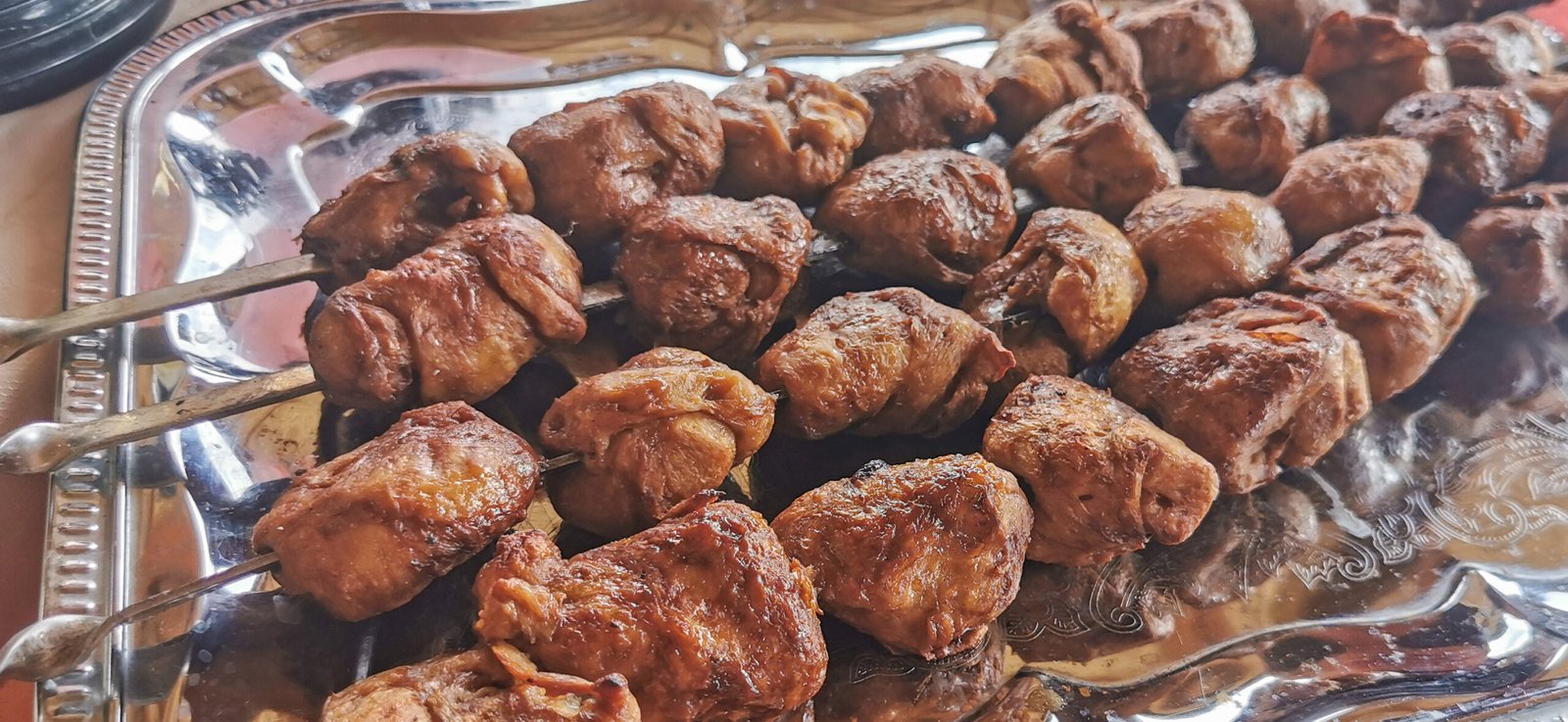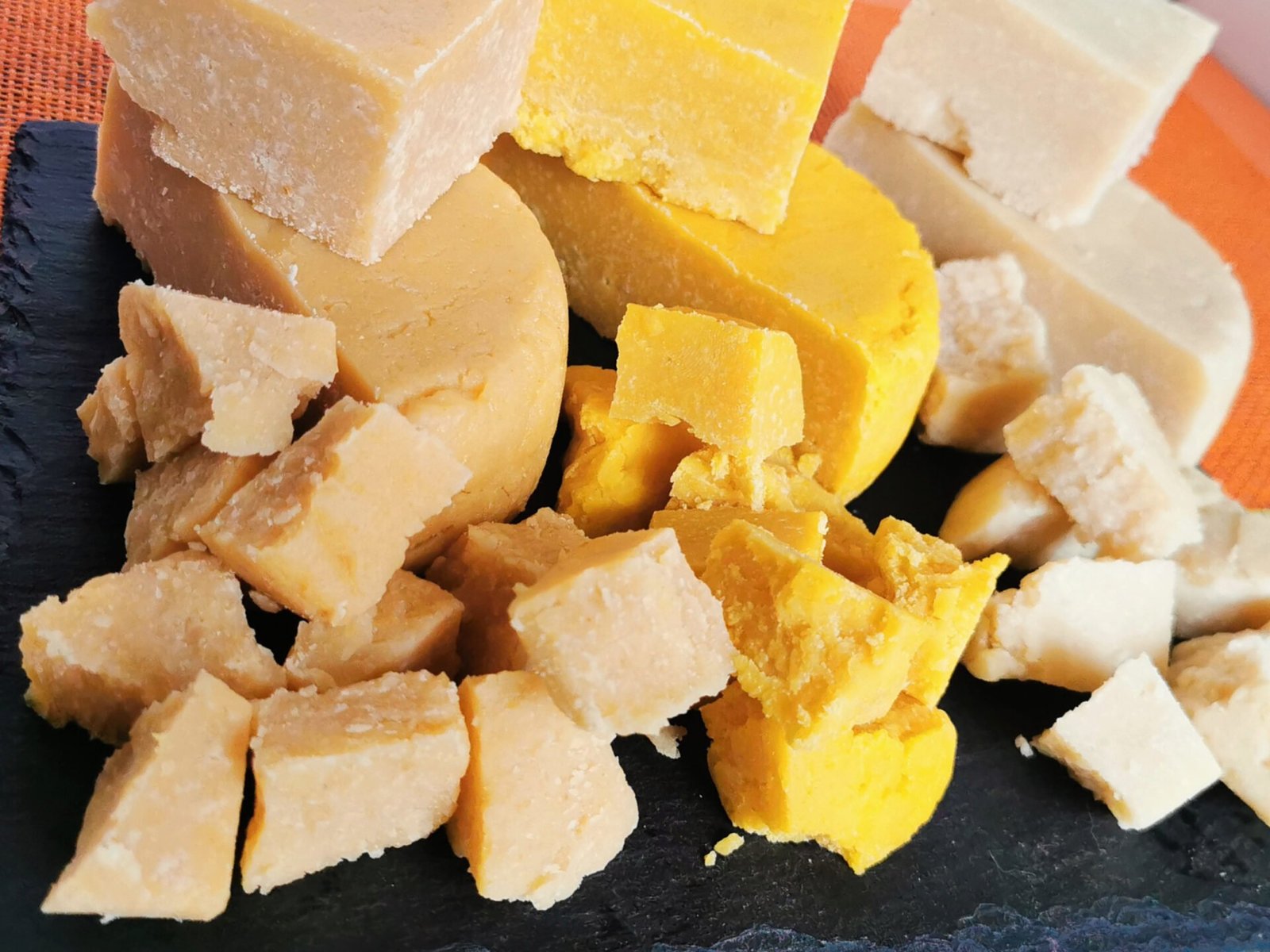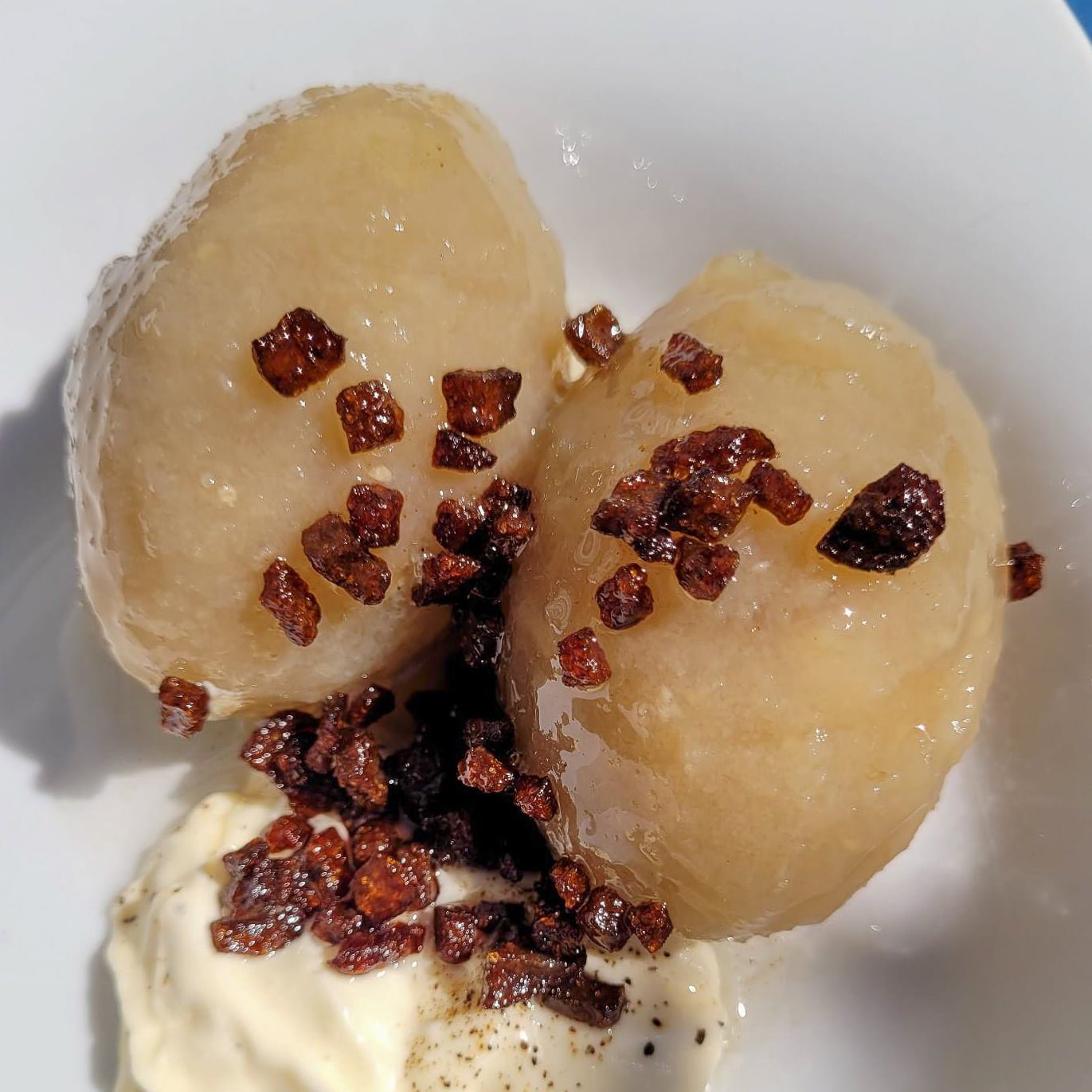If Edgars had to be described in two words, these are the first that come to mind - a virtuoso of seitan (a product made from gluten - wheat protein). Today, he applies his experience and knowledge as a chef by creating plant-based alternatives to meat and other products and by surprising those around him with his culinary masterpieces. Once a skeptic of plant-based nutrition, today he claims that he really found himself there: by experimenting and cooking plant-based food and thereby inspiring others. We invite you to read our interview with Edgar and find out what inspires him and what the experienced plant-based chef lives these days.
Let's start from the beginning – What made you choose the career path of a chef?
Since childhood, I was always attracted to cooking, I helped my mother and grandmother in the kitchen. Cooking has been incredibly therapeutic, and the food itself is amazing. It is both art, recreation, and something that brings people closeness. When I was finishing school, I dreamed of owning my own cafe, so after finishing high school I chose chef education, and today I count more than 15 years of accumulated experience in this craft.
Although you are now a vegan, there was a time when plant-based nutrition was completely foreign to you. What prompted the change in eating habits?
The reason that prompted the change in eating habits is indeed very romantic. I met a girl who was already vegan back then. The interaction continued, so naturally her approach inspired me as well. After the first live meeting, when I got home, I packed up all the meat products I had and gave them to my roommate. Dairy products and eggs followed a week later.
Did you switch to a plant-based diet immediately or did you change your eating habits gradually?
The change happened quickly, I decided to stop consuming any animal products and I did. I started to delve into how certain foods, e.g. animal, appears on our table. Because until you are interested, you don't really associate the methods of obtaining animal food with your favorite dishes. I can only say one thing - it is definitely not humane.
What advice would you give to someone who is considering a plant-based diet but doesn't know where to start?
First, I suggest understanding what they are attracted to and like about animal products and why, say, it is more difficult for them to give them up. Because, for example, some people like meat because of fat, others because of leanness, but basically it's all about taste. And then don't be afraid to experiment trying to recreate such a taste or texture with the help of plant ingredients. Because flavor is essentially created by spices. Nowadays, the Internet is full of good and useful information, you just need to be interested and not be afraid to try.
Where do you get your culinary inspiration from?
From people. My biggest inspiration is the environment that surrounds me. I have acquaintances who are vegetarians, pescetarians, and omnivores. They tell me what they want, what they like, what they lack. Vegan e.g. wants to remember the taste of a boiled egg, omnivores and vegetarians are curious to try vegetable barbecue. And the pescetar wants to take the next step and give up the fish. That's how the inspiration comes to make a boiled egg, seitan kebab, or the same carrot or tofu that tastes like fish. Speaking of plant-based culinary content creators, that would probably be Mark Thompson (Sauce Stache), Brian Watson (Thee Burger Dude) and Gaz Oakley (Avant-Garde Vegan). Out of all the creators, they impress me the most and each one is unique.
Have you always cooked only plant-based food?
Not really, out of 15 years in the kitchen, I've been cooking plant-based food for five years. I would even like to make such a mini-confession: there was a time when I was against a plant-based diet. In our society, men are not particularly receptive to a plant-based diet. From childhood we are taught that meat is necessary for a man, that it is a part of masculinity, so it is really difficult to accept different information, it seems that we lose a part of our identity.
What opportunities does plant-based cuisine offer that are missed when working with traditional products?
Health and color. Plant foods are so diverse, let's take lentils for example - they are all different not only in appearance, but also in taste. Most products in a plant-based diet can be eaten raw, so you don't have to worry about getting salmonellosis when you eat a banana or a pepper. After switching to a plant-based diet, I introduced myself to many new dishes and products. Before, my food choices were like a small lake, but now I feel like I'm swimming in vast oceans. When it comes to a plant-based diet, the only limit is your imagination.
What do you see as the future of plant-based nutrition in the context of the restaurant industry?
Plant-based nutrition is the future. We see how the consumption of animal products is gradually decreasing in many places and how many new plant-based alternatives are emerging, the supply and demand for plant-based products in stores is increasing. Even fast food restaurants like Hesburger, KFC, McDonald's have already launched their plant-based offerings, which only shows how popular plant-based nutrition is. People are taking food more and more seriously every day: they want it to be healthier, less ecologically harmful, and more animal-friendly. Restaurants should hurry up with their signature plant-based dishes. I am a firm believer that every restaurant should have its own vegetarian options, and preferably a separate vegetarian menu.

Is there any advice you can give to people who are just considering a plant-based diet?
Listen less to people who say not to, because most people who practice a plant-based diet or a vegan lifestyle today have probably heard the same thing before: plant-based diets are bad, plant-based diets are not wholesome. But all this is a myth. When starting out, find reliable sources that can explain to you how to start the change in the right way, it will be easier. There are even nutritionists in Lithuania, athletes, nutritionists, who can help you with this.
What is your favorite dish to cook?
Probably paste. Pasta has been my favorite food since childhood, I must have Italian roots or genes somewhere. Pasta is one of the most versatile dishes, and even nowadays the variety of pasta itself is huge: from lentils, peas, with seaweed or paprika. And I am never disappointed with the pasta dishes I make.

Your project Studio #V recently started. Would you like to share what the project is and what is ahead?
Studio #V, or as it should be read Studio number 5 (V - Roman five, and at the same time symbolizes veganism) is the fruit of love born from a passion for plant-based food. I have been thinking for a long time about how to use my accumulated knowledge. While we were living in Poland, my fiancee and I got an offer from Viva to run a plant-based food workshop. At first I didn't really want to, but then my fiancee broke the ice and I agreed. The day I gave the training was one of the most fun experiences I've had so far and I knew this was my calling. Therefore, we have now founded Studio #V. This is – a plant-based cooking project to teach caterers, shops and individuals how to create amazing plant-based alternatives to meat, fish, eggs, dairy and more! We are ready to teach and educate everyone who wants to deepen their knowledge for both commercial and personal purposes.
Thanks to Edgar for the pleasant conversation and shared insights. We invite you to follow his new project Studio #V and its activities on social networks Instagram and Facebook.

